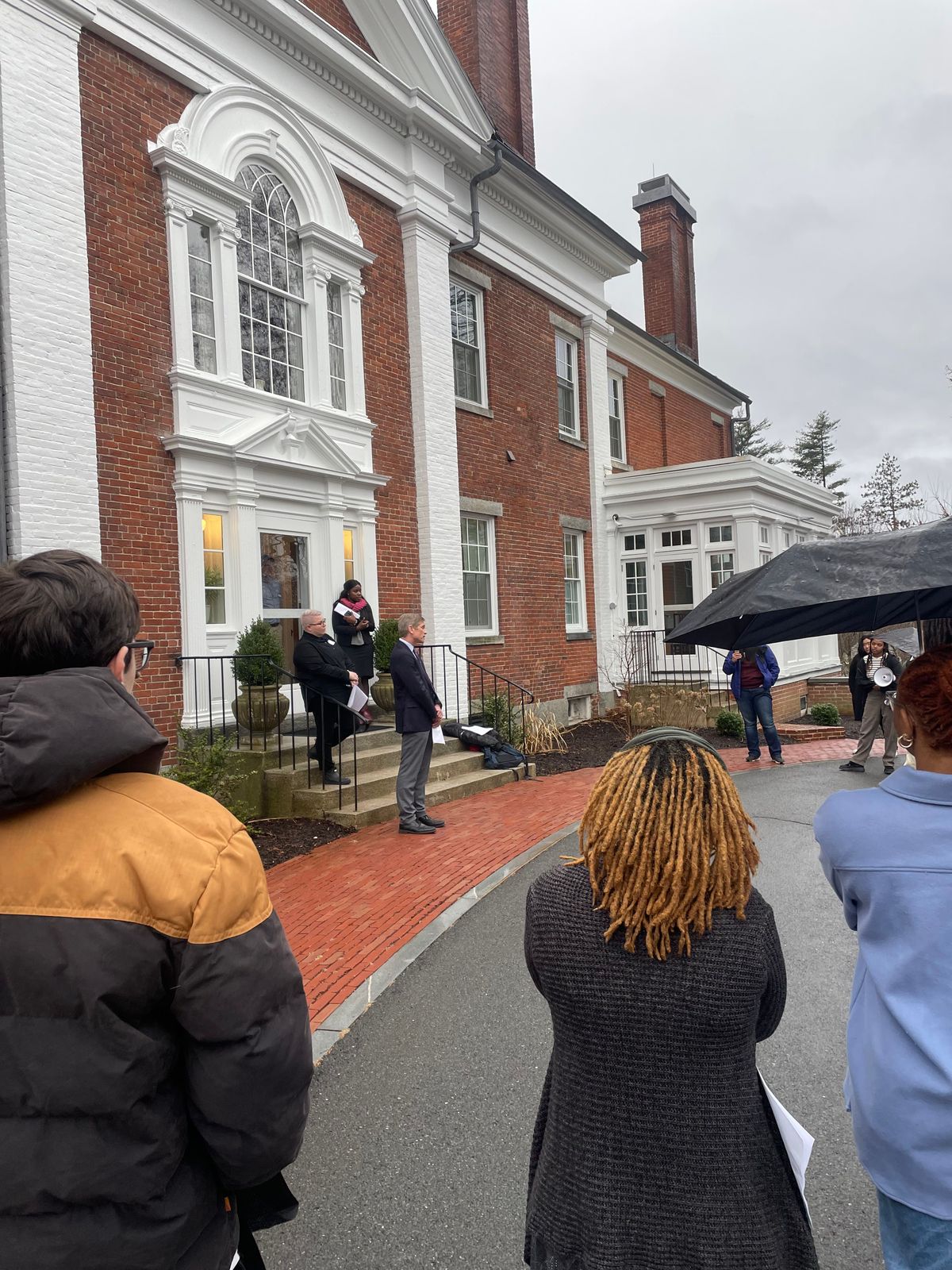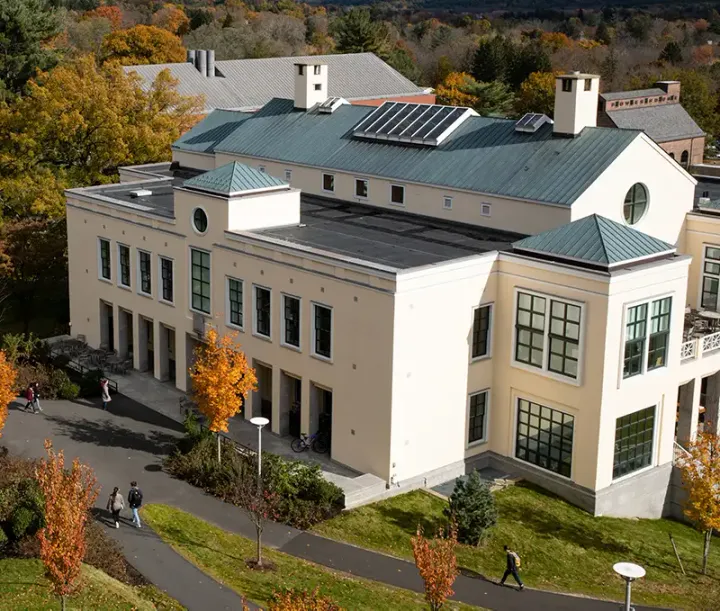Resource Center Staff Protest Israel/Palestine Censorship
After the Women’s and Gender Center didn't publish a student employee’s column about reproductive health in Gaza, employees staged a walkout condemning censorship and demanding that the college investigate its financial ties to Israel and call for a ceasefire.

Logan Maniscalco ’24 wanted to write about restricted reproductive healthcare access for Palestinian women as part of a column for the Women’s and Gender Center (WGC) that they have been running for almost two years. However, their supervisors determined that the piece would not be published for the WGC; it ended up in The Student instead.
“[To see it not published through the WGC] was really, really frustrating,” Maniscalco said. “These are topics that I have been researching and writing about a lot in the past few years, so it was incredibly important to me, especially in terms of focusing on Palestine.”
Maniscalco and other student employees of the Office of Identity and Cultural Resources (OICR), which houses the college’s resource centers, saw the column’s review process as an act of censorship.
In response, on Thursday, March 28, close to a dozen OICR student employees walked out of a reception with President Michael Elliott and Dean of Students Angie Tissi-Gassoway, who oversees the OICR.
Standing on the steps in front of the president’s house, organizers read a statement that condemned censorship of student employees’ speech on the Israel/Palestine conflict and echoed longstanding demands that the college investigate its financial ties to Israel’s war effort and call for a ceasefire in Gaza. Maniscalco also came forward to describe their experience with the column. The protest was joined by members of Amherst for Palestine and Amherst Jews for Ceasefire.
The statement connected Maniscalco’s column to what organizers saw as a broader pattern of censorship on campus.
“We have heard reports from students who have faced consequences for speaking out in support of Palestine, ranging from censorship to being forced off campus out of the belief that their advocacy hid mental instability,” said protest organizer and Multicultural Resource Center Program Organizer Victoria Thomas ’25 in a speech.
Last week, Amherst for Palestine posted an Instagram story suggesting that a student had been removed from the school for emails to the administration criticizing its stance on Israel/Palestine.
Tissi-Gassoway said that the student in question is on “voluntary leave” and was not punished for political speech.
Tissi-Gassoway denied that the WGC’s actions qualified as censorship, adding that even though there is a disclaimer on Maniscalco’s column that the views represent the writer, the pieces nevertheless represent the WGC and the college.
Still, Tissi-Gassoway “100 percent supports” students publishing their opinions outside of OICR, in places like The Student.
“[But I also] have to support my directors and their leadership decisions as it relates to the expectations of the resource centers,” Tissi-Gassoway said. “It’s our job to work with students to help them navigate these complexities of the work environment.”
Mansicalco said that the column, which they began publishing in April of 2022, had typically undergone light editing by their supervisor before being published in the WGC’s newsletter and on its website.
Maniscalco’s supervisor expressed concerns about the Palestine article before publication, they said, and it was ultimately read and commented on by at least four full-time staff members. One comment noted the use of the word genocide in the first sentence, “flagging” the language for further consideration.
“[Associate Dean of Students Crystal Norwood] was worried about the perception of the WGC and the OICR, that it would come across as though the WGC was promoting a pro-Palestine side and that would possibly alienate pro-Israel students and make the WGC not a safe space,” Maniscalco said.
The column was the subject of a meeting between staff members that Maniscalco was not invited to, they added, and one staff member even suggested that the column would have to be cleared by Tissi-Gassoway.
“It was becoming very clear that I was not going to be allowed to publish it to the WGC, and if it was allowed to go through, there would be so many significant changes that it wouldn't even be what I had originally intended for it to be,” Maniscalco said.
It was at that point that they opted for publication in the Student.
Though the OICR’s internal decision-making was never clear to Maniscalco, Tissi-Gassoway was explicit in an interview with The Student.
“There was a decision to not publish the article,” they said, though they only learned about the OICR’s decision-making process on Thursday.
Tissi-Gassoway said that they had not been alerted of any concerns about censorship before the protest.
“It is hard to respond to the complexities of what is being shared without hearing from students directly,” Tissi-Gassoway said. “I really want to hear from them, and how I can show up to support them.”
This Friday, Tissi-Gassoway, Norwood, and Elliott will be meeting with some students who signed the protestors’ statement to “learn more about what they are navigating.”
For their part, Mansicalco said they will continue publishing the WGC column, though their experience with the Palestine article has shifted their relationship to it.
“Everything that I write for the column now I feel a little bit hesitant about,” Maniscalco said.





Comments ()